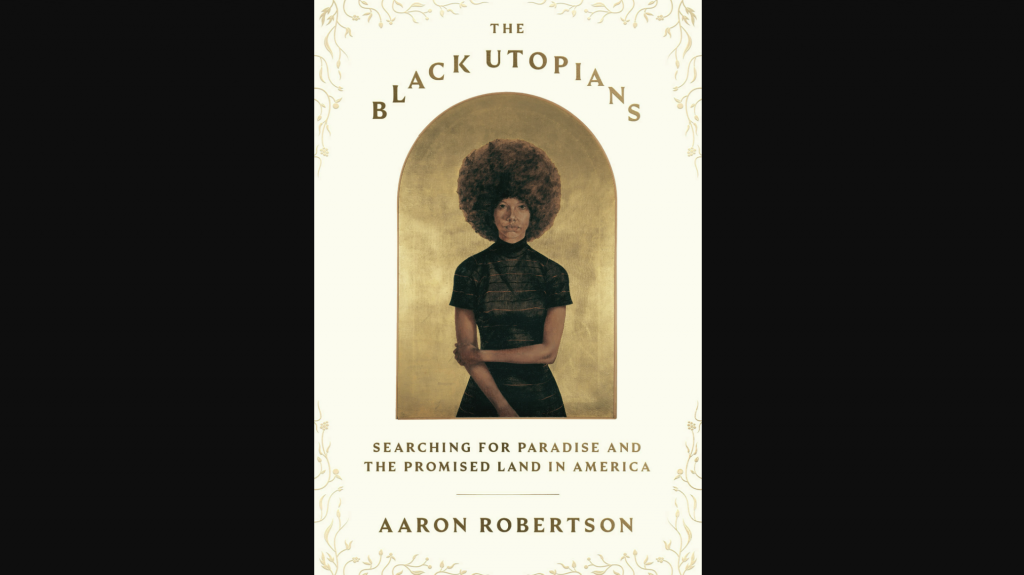The Metro: New book takes historical look at how Black Americans envisioned utopia
John Filbrandt October 1, 2024Detroit author Aaron Roberston joined the show to share his reflections on the diverse array of Black utopian visions throughout American history.

"The Black Utopians: Searching for Paradise and the Promised Land in America," by Aaron Robertson.
For many Black Americans, the idea of religion intersects with freedom in a complicated way. Enslaved Africans came to this country with religions and traditions, most of which were stripped upon arrival and replaced with new forms of worship.
Subscribe to The Metro on Apple Podcasts, Spotify, NPR.org or wherever you get your podcasts.
Once the freedoms of Black Americans were slowly granted after the Civil War, the ideas for what the future could look like and how to achieve that future were beginning to take root. Black-led cities, towns and small communities began to flourish — many short-lived — but their ideas of a paradise on earth persisted.
Detroiter Aaron Robertson’s new book, “The Black Utopians: Searching for Paradise and the Promised Land in America,” takes a nonfiction look at what happened when Black Americans were dreaming of better lives and different ways of religious thinking.
The book follows along the histories of these movements — including the history of the Black Christian Nationalist Movement and the Shrine of the Black Madonna in Detroit.
Roberston joined The Metro on Tuesday to chat more about the book and its significance.
Use the media player above to listen to the full conversation with Robertson.
More headlines from The Metro on Oct. 1, 2024:
- A recent set of bills passed by the Michigan state House and Senate would allow home health care workers to unionize. Gongwer News Service reporter Elena Durnbaugh joined the show to discuss the proposed legislation.
- In the late ’80s and ’90s, Michigan adopted punitive criminal policies — at one point incarcerating more juvenile lifers than any other state in the country. But while they’re still possible, life-without-parole sentences are not automatic and much less likely after U.S. Supreme Court rulings limited these sentences. Still, many in criminal justice reform spaces are trying to end life-without-parole sentences completely in Michigan. Tonight, several former juvenile lifers are speaking at Wayne State to share their stories as part of a panel conversation and film called “Life Beyond Life.” Community Engagement Specialist for Safe & Just Michigan Ronnie Waters joined the show to share more about the event.
- Art has the ability to tell stories and weave us together. That’s the theme of a newly renovated studio, gallery and event space, Schinkel Fine Art, located on East Jefferson in Detroit. The gallery’s inaugural exhibition, “Threads of Connection” opens on Thursday, Oct. 3, with a public reception. Gallery owners and mother/son duo Linda and Teddy Schinkel joined The Metro to talk about the new gallery space.
Listen to The Metro weekdays from 11 a.m. to noon ET on 101.9 FM and streaming on-demand.
Trusted, accurate, up-to-date.
WDET strives to make our journalism accessible to everyone. As a public media institution, we maintain our journalistic integrity through independent support from readers like you. If you value WDET as your source of news, music and conversation, please make a gift today. Donate today »Author
-
Jack Filbrandt is an assistant producer on WDET's daily news, arts and culture program, The Metro. He grew up on Lake Michigan and has called Detroit home for seven years. He's also a Detroit Documenter, covering local government meetings in the city. He previously worked for Wayne State's student newspaper, The South End, and The Battering Ram.
